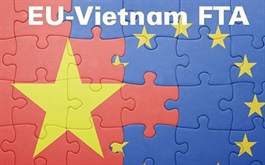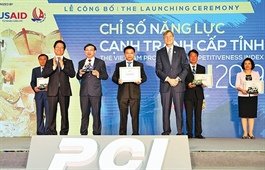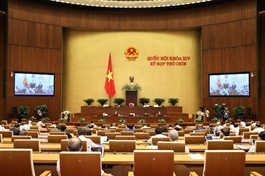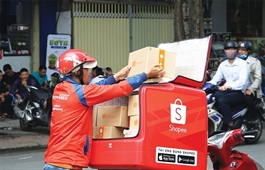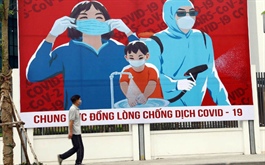Prospects for those with good grip on rule of origin
Prospects for those with good grip on rule of origin
The enforcement of the landmark EU-Vietnam Free Trade Agreement can become reality within the next few months, ushering in multiple benefits for both sides. Phan Van Chinh, director general of the Agency of Foreign Trade under the Ministry of Industry and Trade, scrutinises one of the essential legal requirements about rules of origin of export products, promising to benefit local businesses from its enormous incentives after the deal comes into effect.
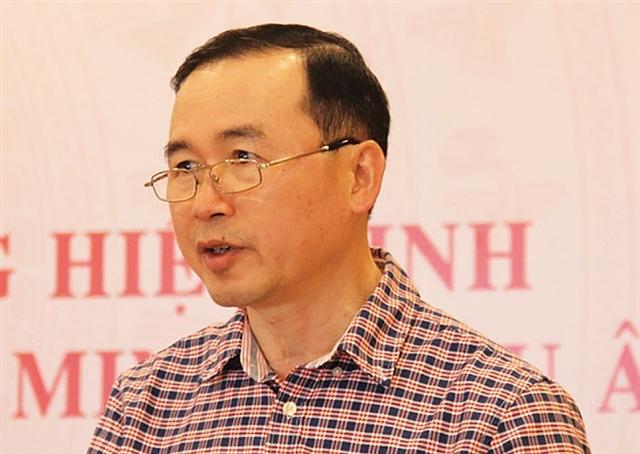
Phan Van Chinh, director general of the Agency of Foreign Trade under the Ministry of Industry and Trade
|
Could you clarify the rules of origin (ROO) under the EU-Vietnam Free Trade Agreement (EVFTA) compared to others with Vietnam’s engagement?
The ROO within the EVFTA is not a new concept to Vietnamese firms as it has been built up and negotiated by leveraging the ROO principle in the General System of Preferences (GSP) that has been in place for many years now. Until now, many local firms have become beneficiaries of the GSP system when exporting products to EU. However, compared to other FTAs, the ROO under the EVFTA features new points, both in the way the criteria are explained, as well as in associated regulations. For instance, several export items such as textiles are liable to use material from certain countries who are not members of the agreement. Albeit not absolutely new, the ROO under EVFTA is fairly complex. Therefore, to effectively avail of the opportunities from the deal, local businesses should be well prepared for the execution once the EVFTA comes into force.
Would you briefly describe some particular ROO requirements applicable to Vietnam’s major exports into the EU?
For seafood products, the ROO will be applied to raw and processed seafood which shall be wholly obtained (WO), meaning that the seafood needs to be raised in EVFTA member countries. The WO rule for seafood under EVFTA is deemed as more flexible compared to the GSP.
Regarding textile items, the “yard-forward” principle is used for exporting textile products to EU countries, meaning that the fabric must be produced in Vietnam or any EU member country. Simultaneously, the products also need to meet specific requirements on processing stated in the agreement. The EVFTA, however, allows using 10 per cent of the weight of yarns or fibres and 8 per cent of the value of material of other sources in the production process.
Meanwhile, footwear products can use materials from outside sources, except some attached parts for shoes. The requirement is deemed stricter than in several other FTAs but not new to the footwear industry.
Is there any difference in the mechanism of setting the ROO under the EVFTA compared to other FTAs?
The mechanism in setting the ROO is happening between government agencies and it takes 10 months for the relevant agencies to join efforts in setting the ROO. In the case of an importing country continually detecting fraudulent acts related to the ROO, or the exporting country lacks co-operation, not allowing the importing country to verify the ROO at the production site, the two sides must discuss rectification measures.
If after 30 days both parties fail to reach a consensus, the case shall be submitted to the Committee for the EVFTA Implementation. The importer shall take measures temporarily such as ceasing the incentive if no remedy could be reached after 60 days.
What businesses should best avail of the incentives right after the EVFTA’s enforcement?
As the ROO under the EVFTA mandates a large involvement of material sources within the FTA’s area like in the case of seafood and footwear, local businesses need to bolster their production, processing, and sourcing capacity within the region or develop domestic sources. In the meantime, Vietnamese businesses must take the initiative in communicating about the ROO and how to implement it after the EVFTA comes into effect.
In addition, businesses should be proactive in promoting trade activities with the engagement of EU partners in the quest for new partners and material sources, thereby expanding the supply chain in the region as well as advancing further into EU markets.




